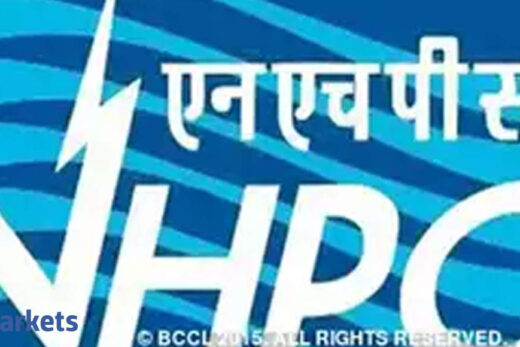In morning trade, Vodafone Idea stock was up 3.6% at Rs 8.58 on the BSE, having touched an intraday high of Rs 8.90.
The Department of Telecommunications (DoT) has proposed a four-year moratorium on adjusted gross revenue (AGR) and spectrum payments apart from a reduction in spectrum usage charge (SUC) prospectively, among measures to improve the health of the debt-laden sector and retain a three-private player market.
Other crucial proposals include a reduction in bank guarantees, redefining AGR to exclude ‘non-telecom’ items, again prospectively, and allowing telcos to surrender unused spectrum, a senior government official said.
The government is also evaluating whether to take a small stake in financially struggling Vodafone Idea, in order to allay investor concerns regarding the future of the telco. This, officials say, could be a small quantum against part of the dues the carrier owes the government. Of its total Rs 1.9 lakh crore debt, the telco owes over Rs 1.6 lakh crore to the government towards its AGR and spectrum payments.
Another option being considered is keeping a window open for the government to convert a part of the company’s dues to it as equity after four years.
“Deferment in payment of AGR dues and spectrum auction should considerably help the operational profitability of the company. If in four years’ time, the company is able to improve its operational performance but is being dragged only due to the payment of these dues, then the government could step in and convert a part of the dues into equity,” the official explained.
If finalised, the package, while meant for giving relief to an industry with more than Rs 8 lakh crore of debt, could specifically ease cash-strapped Vodafone Idea’s immediate cash flow woes and help in its bid to remain in a market that has Reliance Jio Infocomm and Bharti Airtel as the other two private players. State-run Bharat Sanchar Nigam Ltd. is the fourth telco in India.
Vodafone Idea–which had Rs 920 crore in cash and cash equivalents at June end and has Rs 1.9 lakh crore of debt – faces Rs 58,254 crore in AGR dues, of which it has paid Rs 7,854 crore. Analysts fear
may fall short of its annual payment commitments, including an AGR instalment and spectrum payment, by around Rs 23,000 crore in FY23, pushing it towards bankruptcy.
As things stand, the JV between UK’s Vodafone Group and India’s diversified Aditya Birla Group (ABG) needs to pay around Rs 9,000 crore as its next AGR instalment, which falls due in March 2022. A deferral option of four years could push its AGR payout of almost Rs 36,000 crore by that much, easing its immediate cash flow problems, said experts.
Additionally, Vodafone Idea pays licence fees and SUC of about Rs 5,000 crore annually, out of which the former is around Rs 3,200 crore. Also, it needs to pay around Rs 14,000 crore toward spectrum payments every year, starting April 2022.
For Airtel, any deferral of AGR payment would allow it to push payouts worth about Rs 18,000 crore (less than Rs 4,500 crore annual installment) by four years. However, it remains to be seen whether it will opt for a deferment of spectrum payments, since there will be an interest element attached to the moratorium.
ABG chairman Kumar Mangalam Birla met telecom minister Ashwini Vaishnaw last week. In June, he had written to the government that the telco won’t survive unless the government provides some relief, and had even offered to give up the ABG stake in Vodafone Idea to a state-owned entity which could help revive the company. The government, in turn, had asked the company to share details of how soon it will be able to get investments, once the government announces a relief package. Birla, in early August, resigned as the chairman of the telco, and was replaced by Himanshu Kapania.
As reported earlier, the government has asked for the amount of investment that will be forthcoming, as well as details of the company’s medium-term plans, including how it expects the average revenue per user (ARPU) and related metrics to improve following such a package.
Despite attempts over the last 11 months, Vodafone Idea has failed to conclude its planned Rs 25,000-crore fundraising plan. Birla had blamed unviability of the telecom sector as the chief reason for its inability to raise money.
Experts said the DoT’s latest proposals, though delayed, could help in improving the industry’s finances.
A critical step is a relook at the definition of AGR to exclude non-telecom items. This has been the subject of a long-standing battle between the government and telcos, which the DoT won in September 2019 in the Supreme Court.
The court then backed the government and widened the definition of AGR to include non-telecom items. But this left India’s older telcos – Bharti Airtel and Vodafone Idea – facing a combined Rs 1.02 lakh crore in AGR-related licence fees and SUC dues, pushing the already struggling Vodafone Idea further toward a possibly fatal financial crisis, said analysts.
“So, a fresh definition for AGR excluding all non-telecom revenue could actually help clear all the doubts and grey areas which have been a bone of contention between the telcos and the government,” a senior official had earlier told ET.
Licence fees and SUC are paid on the basis of AGR. Hence, lower AGR will mean reduced related levies.
A provision to allow telcos to surrender airwaves to the government with a small penalty in case any amount is lying unused with them will also help Vodafone Idea get some cash back, said analysts.
“VIL has lost ground in several markets. If the government lets VIL surrender under-utilised spectrum, the company can review its spectrum needs and decide to vacate certain markets, which can reduce its debt burden as well as losses,” brokerage BNP Paribas said in a report. “VIL can consider selling its network/subscribers to competition in those circles, helping it reduce the debt burden further.”
According to some industry estimates, Vodafone Idea is currently not using almost a third of its spectrum for which it has to pay instalments to the government.



